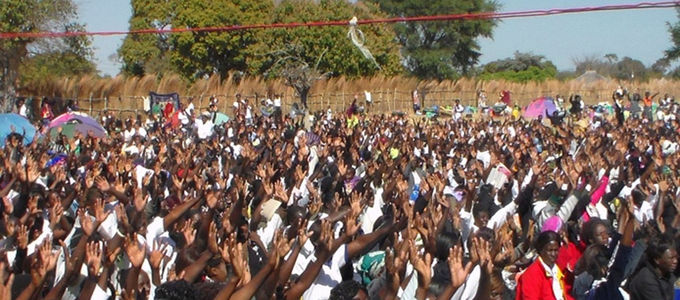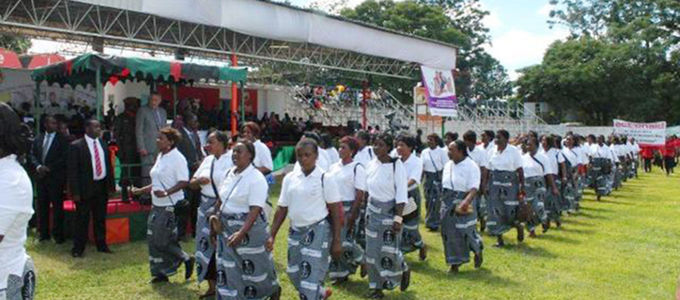Chief Apostle to visit Blantyre, Malawi’s oldest municipality

Malawi is the cradle of the New Apostolic Church in Central Africa. George Henwood, the later Apostle, was born here in 1901. He was one of the great pioneers of missionary work and instrumental in building up the church in Zambia, Zimbabwe, and Malawi. Chief Apostle Jean-Luc Schneider will celebrate the upcoming service for the departed in Blantyre.
It is the first time that the Chief Apostle will be in Blantyre. It is an area steeped in history. The city in the south of the country with its 1.9 million inhabitants was awarded city rights in 1885, making it the oldest city in Malawi. The development of the New Apostolic Church in Africa also began here. It is closely tied to George Mkandawire Henwood, the later Apostle, who grew up in Mzimba. He attended a mission school, which was fairly unusual at the time. His teacher’s name was Henwood. The man recognized the unusual talent in his young pupil. Upon his retirement, the teacher returned to Cape Town and took his young pupil, George, with him. The Henwoods adopted young George, who assumed the name Henwood from them.
Henwood the pioneer
In Cape Town, George Henwood met a young woman who became his wife. She was New Apostolic. He became New Apostolic to please her. In 1928 he was ordained as a Deacon and followed a call by his Apostle to go to Livingstone in Northern Rhodesia (modern Zambia). Later, as a District Elder, he chose a similar method and sent five men to Nyasaland (Malawi today). This was in 1944. For three months they testified to people there about their faith. The reports they sent back to their District Elder were encouraging. He dispatched two more Deacons and asked them to also go and establish the New Apostolic Church in the region of Mzimba, where he had grown up.
George Henwood was ordained as an Apostle in 1954. He was the first black Apostle in the history of the New Apostolic Church.
Today there are approximately 240,000 New Apostolic Christians in Malawi spread over 2,000 congregations. Together with Zambia and Zimbabwe, the Church in Malawi falls under the care of District Apostle Charles S. Ndandula and is a veritable stronghold of the New Apostolic faith.
Money for a church
The way there was paved with difficulties, something one often sees when one looks back on history. But there are also nice anecdotes that come to mind. Such as the time when District Apostle Hubert Howes Fernandes was lent a Land Rover. This was in the late 1960s. “We have not been able to visit all the congregations in Malawi, because the so-called roads that lead there are impassable for all but 4×4 vehicles,” District Apostle Karl Gut, his colleague, reported at the time. “To make matters worse, it is impossible to find accommodation in some areas.” The Land Rover proved to be an absolute godsend. They used it as their mobile home.
Or take the congregation of Mzuzu in the late 1990s. Dr Bakili Muluzi, the president of Malawi then, attended a service in the New Apostolic Church. He noticed that most of the people sat outside because there was just not enough space inside. Not long after, the president’s wife, Anne Muluzi, visited the congregation and presented a cheque for 250,000 kwacha on behalf of her husband.
Repeated setbacks
The Church is well-established in Malawi today. Setbacks occur in the form of periodical natural disasters, such as in 2015. Some 174,000 people lost their homes to flooding at the time. There were many deaths. The floods erased entire villages. Some areas were under three metres of water. Overcrowded emergency shelters, a critical lack of sanitation facilities, and the resulting risk of disease called for immediate aid. And this is where the name Henwood comes in again. For many years, the relief organization of the New Apostolic Church in Zambia operated under the name Henwood Foundation. The name of the charity was changed to New Apostolic Church Relief Organization (NACRO) in 2014.




















